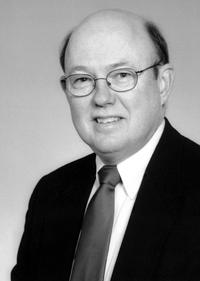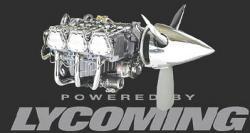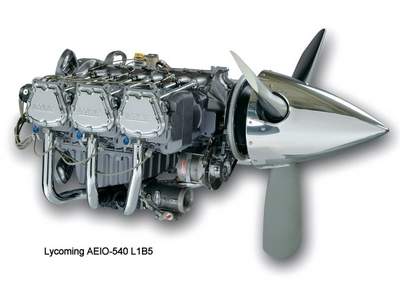An ANN Exclusive Interview With Mike Wolf, Lycoming's
President
 "We've been making aviation
engines for 74 years, engines for over 90," said Mike Wolf (right),
Lycoming's President, as ANN had a chance to chat with the man who
has lived through and learned a lot over the past year and a
half.
"We've been making aviation
engines for 74 years, engines for over 90," said Mike Wolf (right),
Lycoming's President, as ANN had a chance to chat with the man who
has lived through and learned a lot over the past year and a
half.
"We put in place a really unprecedented support program last
year," he told us.
He was, of course, reminiscing (at our request) about the
"Lycoming crankshaft AD." Around a thousand of Lycoming's
6-cylinder engines were affected, in near-simultaneous manner, with
both crankshaft and crank bolt Airworthiness Directives. The
results were that a large part of the modern fleet was grounded;
airplanes on dealers' lots were un-saleable; and, for a short time,
nobody knew what would happen next.
"We had to find the problem first, and define it," Mr. Wolf told
us. "Then we had to devise the solution; and then we had to get the
FAA to approve it -- before we could start making it better."
 He added, "The timing -- in the
economy and the industry -- didn't help, either."
He added, "The timing -- in the
economy and the industry -- didn't help, either."
Other things worked both for and against the eventual -- and
fairly quick, as it turns out -- solution. "We were already working
on our FAA processes [as part of a modernization and efficiency
move] when that whole issue came up." The recall and massive
rebuilding program forced the issue: "We had to hire 140 people (in
addition to our regular 500 or so), just to help."
It went fast: "We were finished (in the factory) by March, and
the problem was effectively over by April."
 The factory has a lot of
modern touches that will continue to help efficiency, and aid
flexibility. Mike said, "It's hard to keep up with all that paper.
Now, we have digital photos of the engines in assembly [area] that
we embedded into the work instructions. We can check right there,
on the screen; and we have touch-screen procedures -- anything
that's needed, it's ready to read. A change in engineering is on
the floor that same day."
The factory has a lot of
modern touches that will continue to help efficiency, and aid
flexibility. Mike said, "It's hard to keep up with all that paper.
Now, we have digital photos of the engines in assembly [area] that
we embedded into the work instructions. We can check right there,
on the screen; and we have touch-screen procedures -- anything
that's needed, it's ready to read. A change in engineering is on
the floor that same day."
"We're spreading that technology through the whole line in the
next year or two, and adding a clean room and modernized test
cells," the Prez added. "We'll be checking more parameters, with
more instruments, in test."
Interestingly enough, another Textron-family company, Textron
Systems, which does most of its work for defense applications (and
specializes in things like test stands) will be making the new test
fixtures.
The future?
"Lycoming is still the industry leader," Mr. Wolf assured us,
"with over 300 thousand opposed engines made, and over 170,000
flying. We want to take the best-possible care of those
customers."

New products are constantly making things better. "We're taking
an evolutionary, rather than revolutionary approach. Our EPIC
[engine-management] system is pretty well debugged," Wolf noted,
"and we're awaiting a launch customer. The 390s and 580s -- their
acceptance is moving along well. In fact, Matt Chaplain is flying
the 580 in the airshows here."
"Our long-term goals are simple: we're a customer-focused
company. Our Customer Care program has taught us a lot in the last
year or so and we are much better for the experience. We've come
through this strong, and we're still making improvements. I guess
you could call the past year a 'great learning experience.'"
Mike paused a moment, and continued, "It's important to our
customers and to us; but it's also important to the industry that
we handled this right. We did what was necessary, and we're better
off -- the industry is better off -- for it. We're actually happy,
now, to have gone through it and we're continuing to improve -- and
to listen to customers."
Even when the problem was on everyone's minds, Lycoming didn't
fold up shop, or go hide back in Williamsport. They kept coming to
shows, telling customers what they knew, even during that
frustrating discovery/regulatory period when 'what they knew'
wasn't enough to make people happy.
Now that things have settled down, customers are coming to the
Lycoming exhibits with smiles. "It's better like this," Wolf said.
"Now they're coming up and saying 'thanks,' and shaking my
hand."
[Note: By way of example, 540 customer David Canter wrote the
company, "...and based on my experience [with the recall], Lycoming
has held true to the values of integrity, honesty, and respect for
individuals. Although my own plane was grounded for six months, you
have earned my respect for how this problem was handled." Lycoming
has received a number of similar letters; and we have heard
customers saying things very similar, now that the problem is in
the past --ed.]
"It's not the man who never makes mistakes -- there are none --
but how he handles his mistakes, that determines character." My Dad
said that; it applies to companies, too --TK
 Classic Aero-TV: Extra; the Airplane, the Man, and His Grand DeLand Plan
Classic Aero-TV: Extra; the Airplane, the Man, and His Grand DeLand Plan ANN FAQ: Follow Us On Instagram!
ANN FAQ: Follow Us On Instagram! Aero-News: Quote of the Day (11.27.25)
Aero-News: Quote of the Day (11.27.25) ANN's Daily Aero-Term (11.27.25): Ultralight Vehicle
ANN's Daily Aero-Term (11.27.25): Ultralight Vehicle ANN's Daily Aero-Linx (11.27.25)
ANN's Daily Aero-Linx (11.27.25)






